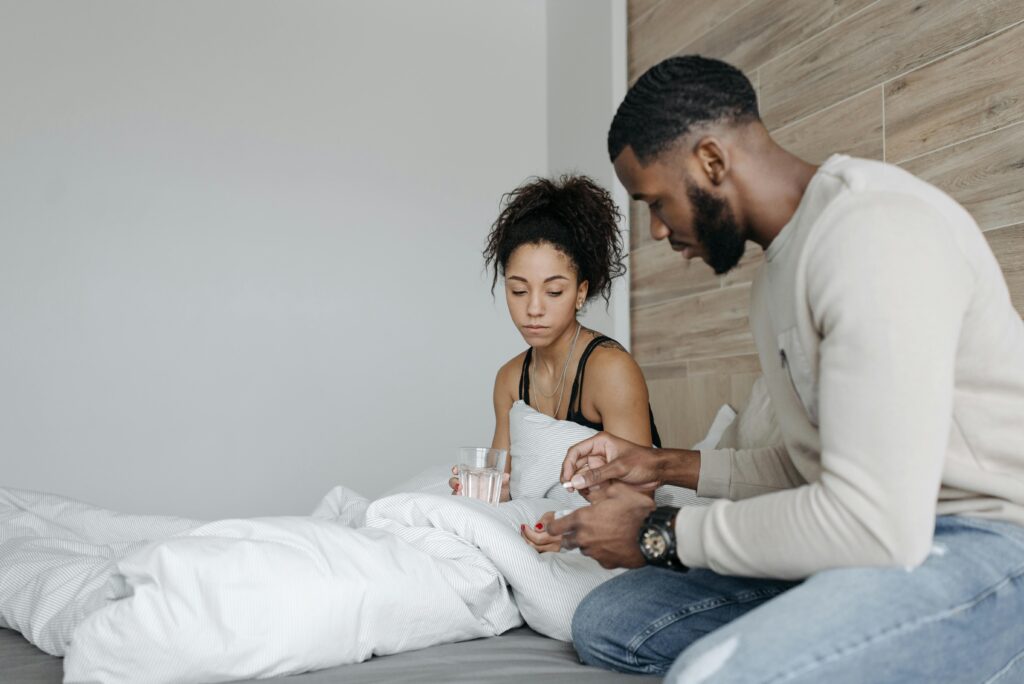Chronic sleep deprivation can lead to:
- Increased Susceptibility to Illness: Studies have shown that people who sleep less than 6 hours a night are more likely to catch colds and viruses than those who get 7–8 hours.
- Reduced Vaccine Effectiveness: Sleep-deprived individuals often have a weaker response to vaccines, producing fewer antibodies. This means the protection vaccines offer may not be as strong or long-lasting.
- Increased Inflammation: Poor sleep contributes to chronic inflammation, which is linked to a host of health issues including heart disease, diabetes, and autoimmune disorders.
- Slower Recovery Time: When you’re sick, lack of sleep can delay healing. Your body needs sleep to effectively marshal immune cells and manage the energy it requires to fight infection.
The Role of Sleep Stages in Immunity
Sleep isn’t uniform—it cycles through different stages, including light sleep, deep sleep (slow-wave sleep), and REM (rapid eye movement) sleep. Each stage plays a role in overall health, but deep sleep is particularly important for the immune system.
During deep sleep:
- The body increases cytokine production.
- Growth hormone is released, aiding tissue repair.
- The brain flushes out toxins that accumulate during waking hours.
REM sleep also plays a role by reducing stress hormones like cortisol, which in high levels can suppress immune function. Missing out on either stage can leave your immune system under-equipped.
Sleep and Stress: A Two-Way Street
Stress and sleep have a complicated relationship. When you’re stressed, your body releases cortisol and adrenaline—hormones that can keep you alert and make it hard to fall asleep. In turn, poor sleep increases stress levels, creating a vicious cycle.
High stress weakens the immune system by impairing white blood cell function. Thus, managing stress is not just good for your mental health but is essential for immune health as well.
Tips to Improve Sleep and Strengthen Immunity
If you want to boost your immune system naturally, start by improving your sleep habits. Here’s how:
- Stick to a Schedule: Go to bed and wake up at the same time every day, even on weekends.
- Limit Screen Time Before Bed: The blue light from phones, tablets, and TVs disrupts melatonin production, the hormone that helps you sleep.
- Create a Sleep-Friendly Environment: Keep your bedroom cool, dark, and quiet. Consider blackout curtains and white noise machines if needed.
- Watch What You Eat and Drink: Avoid caffeine, heavy meals, and alcohol close to bedtime. These can disrupt sleep quality.
- Get Regular Exercise: Physical activity during the day helps you fall asleep faster and enjoy deeper sleep—but avoid vigorous workouts late at night.
- Manage Stress: Practice relaxation techniques like deep breathing, meditation, or journaling before bed.
Conclusion
Sleep isn’t just a luxury—it’s a biological necessity, especially for your immune system. Skimping on sleep may seem harmless in the short term, but over time, it weakens your body’s ability to fight off illness and recover from stress.
So, the next time you consider staying up late or cutting your sleep short, remember: your immune system is listening. Prioritize rest not just for your energy levels or mood—but for your long-term health and resilience.



